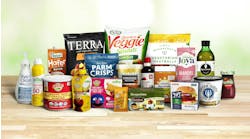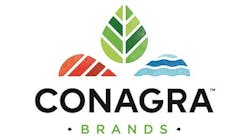Five years ago, leading food & beverage companies made a major commitment to be a part of the solution to childhood obesity by agreeing to limit what foods they advertise to children under the age of 12. The Council of Better Business Bureaus launched the Children's Food and Beverage Advertising Initiative in November 2006 with 10 charter companies. Our goal was to shift the mix of advertising messaging directed at children to encourage healthier dietary choices and healthier lifestyles.
The CFBAI released its annual report in December 2011 and provided a five-year retrospective on the changes in children's food advertising and on the program expansions that have made this self-regulation program even more robust. The report noted there was excellent compliance with the participants' commitments to advertise to children only those products meeting meaningful nutrition criteria or not to engage in child-directed advertising.
Thanks to CFBAI's participants, kids now see ads for a wide variety of healthier products, including cereals, crackers, yogurts, soups, snacks and meals, that have less sugar, sodium and fat, and are more nutritious. These days, children are regularly seeing ads for products that include whole grains or fruits.
The CFBAI itself has changed with the times, expanding the scope of the program to cover new and emerging media, such as child-directed ads on smart phones and ads on children's video games and DVDs. Participation also has grown to 16 companies that represent the vast majority of food and beverage advertising to children.
The 16 participants of the initiative are Burger King Corp., Campbell Soup Co., Coca-Cola Co., ConAgra Foods Inc., Dannon Co., General Mills Inc., Hershey Co., Kellogg Co., Kraft Foods Global Inc., Mars Inc., McDonald's USA LLC, Nestlé USA, PepsiCo Inc., Post Foods LLC, Sara Lee Corp. and Unilever United States.
The companies that participate in the CFBAI have made major changes in their business practices since the program was launched. Under self regulation, they've significantly improved the products in child-directed ads in both traditional and new media. No company is advertising to kids in elementary schools, nor doing product placement in child-directed entertainment or editorial content.
Our most significant advance in 2011, its fifth year, was the issuance of new CFBAI category-specific uniform nutrition criteria. The new criteria build on what CFBAI's participants already have accomplished ─ achieving product improvements without sacrificing taste, which any parent will tell you is more than half the battle.
The new uniform nutrition criteria establish limits on calories, saturated fat, trans fat, sodium and sugars for 10 product categories. They also include requirements for nutrition components to encourage, such as vegetables, fruit, low-fat dairy, whole grains and essential vitamins and minerals. The new criteria require participants to improve many products they currently advertise to children ─ products that already meet meaningful nutrition standards ─ if they wish to continue advertising them after these criteria go into effect on Dec. 31, 2013.

